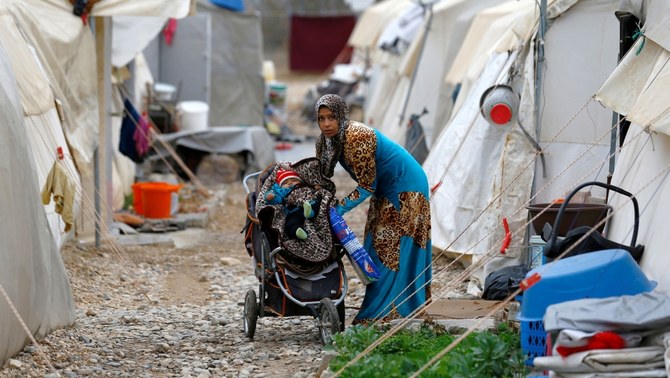ANKARA: Syrian refugees, once welcomed with open arms to Turkey, are now living in fear amid a rise in hate crimes against them, experts have claimed.
Many believe they are being used as political leverage in the upcoming Turkish elections scheduled for next year.
Syrian teenager Fares Elali became one of the latest victims of the backlash when he was recently stabbed to death in the southern Turkish province of Hatay.
The 17-year-old, whose father died during the Syrian conflict in 2011, had managed to get a place to study medicine at a Turkish university and had ambitions of becoming a doctor. His body will be now moved to Syria’s northwestern province of Idlib.
Elali had been working in a tomato pastry factory and was allegedly killed in a revenge attack following a disagreement with a female worker.
Turkey is home to around 3.6 million registered Syrian refugees, the world’s largest refugee population. Physical and verbal racial attacks against them have been steadily increasing in Turkey amid rising inflation and cost-of-living rates that have fueled hostile attitudes toward foreigners.
The country’s economic downturn has seen the official inflation rate hit 80.2 percent and the unofficial one more than 181 percent.
With Turkish parliamentary and presidential elections on the horizon, the issue of repatriating 1 million Syrians back to northern Syria has become a hot topic in domestic politics.
Some right-wing opposition figures have capitalized on the growing resentment by pledging to send Syrians back to their homeland.
There are no official figures relating to violent attacks on Syrian refugees in Turkey.
But in June, two young Syrians — Sultan Abdul Baset Jabneh and Sherif Khaled Al-Ahmad — were reportedly killed by angry Turkish mobs in separate incidents in Istanbul.
On May 30, Syrian woman Leila Muhammad, 70, was hit in the face by a man in the southeastern province of Gaziantep, and recently a 17-year-old Syrian student was verbally abused in the street by an angry Turkish crowd.
Metin Corabatir, president of the Research Center on Asylum and Migration (IGAM), an Ankara-based think tank, told Arab News that increased provocation was being orchestrated by certain elite circles in Turkey.
He said: “Umit Ozdag, leader of the far-right Victory Party who pledged to expel all refugees, is using Syrians as a political card to stoke tensions against foreigners as elections loom.
“Popular figures in the media are also fueling these tensions by disseminating misinformation about Syrians and by drawing a rosy but unreal picture about their living standards in Turkey,” he added.
Omar Kadkoy, a migration policy analyst at Ankara-based think-tank TEPAV, told Arab News that Turkish public opinion was becoming increasingly unfriendly toward foreigners.
He said: “In parallel, resentment is particular toward Syrians and this feeling is not new. Along with an ambiguous harmonization policy, the deeper the nosedive of the economy, the greater the resentment and anger Turks feel about Syrians.”
He pointed out that the death of Elali highlighted the dangers of what could happen when misunderstandings got out of control.
“The deterrent here is the rule of law where the penalty is proportionate to the crime. It is skewed justice to make announcements of deporting Syrians for sharing videos on social media, for example, and not informing the public about the punishment of Fares’ killer or killers,” Kadkoy added.
Although Interior Minister Suleyman Soylu reportedly passed on his condolences to Elali’s family there has been little public condemnation of the attack from political parties in Turkey.
Corabatir said all political groups should include in their election manifesto proposals on how they planned to deal with the Syrian refugee situation, adding that under international law Turkey could not unilaterally send Syrians back home.
“Political parties, ahead of the elections, should lay down their alternative integration proposals in their manifesto in order to convince voters and contribute to peace rather than triggering more tensions,” he said.
Recent reports have hinted at the prospect of a normalization of relations between Turkey and Syrian President Bashar Assad’s regime, but Kadkoy noted that many Syrians did not wish to return to their country while Assad remained in power.
“If Turkey goes down the path of rapprochement without considering the agency of Syrians in any voluntary return, Syrians will be left between a rock and a hard place. The alternative? The shores of the Aegean again,” he said.


























